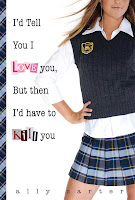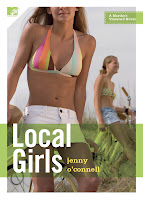STATUS: I have to admit, I’m definitely being distracted by the 2008 Olympics. Last night instead of reading queries, sample pages, or doing the editing I was supposed to, I watched Michael Phelps nail the 200m butterfly gold. Folks, I swam swim team my whole life until I was in college (breast stroke and freestyle (aka. front crawl) if you want to know). The butterfly is one dang hard stroke and to do it in that many seconds for 200 meters. Holy cow! The Men’s Gymnastics team bronze wasn’t half bad either.
What’s playing on the iPod right now? The Olympics on TV, duh.
Here’s a thought from the query slush pile. Even if your novel is based on events from your life or were inspired by what you’ve experienced, I still think it’s best to leave that info out of the query itself. For some reason, writers simply cannot relate those details without lapsing into hyperbole.
I do think it’s a pertinent discussion once an agent or editor has expressed interest in the full manuscript after reading sample pages. After all, if spun right in the editorial letter, it can be a plus but writers themselves rarely manage to capture that appropriate balance (maybe because it’s different when an agent says it to the editor versus when writers are talking about themselves).
And when you finally do share that personal detail, keep the narration short and concise. It’s really just on a “need to know” basis. Too many writers are seduced by the melodrama and include every single detail. And even though writing the novel itself might be cathartic, no agent really wants to know that the writing was therapy (if that makes sense).
And in an aside, good agent friend Janet Reid is talking on her blog about going contracts alone. The ten things you need to know (above and beyond everything I talk about in my Agenting 101 entries).



